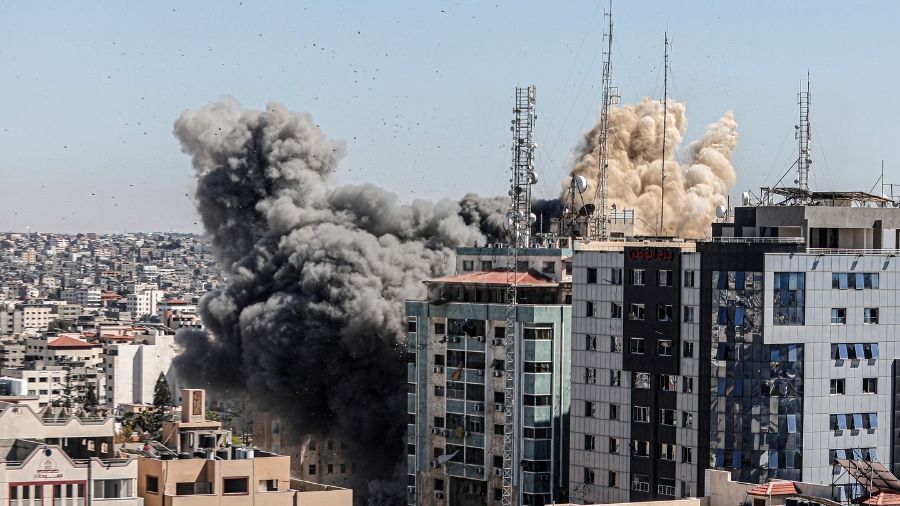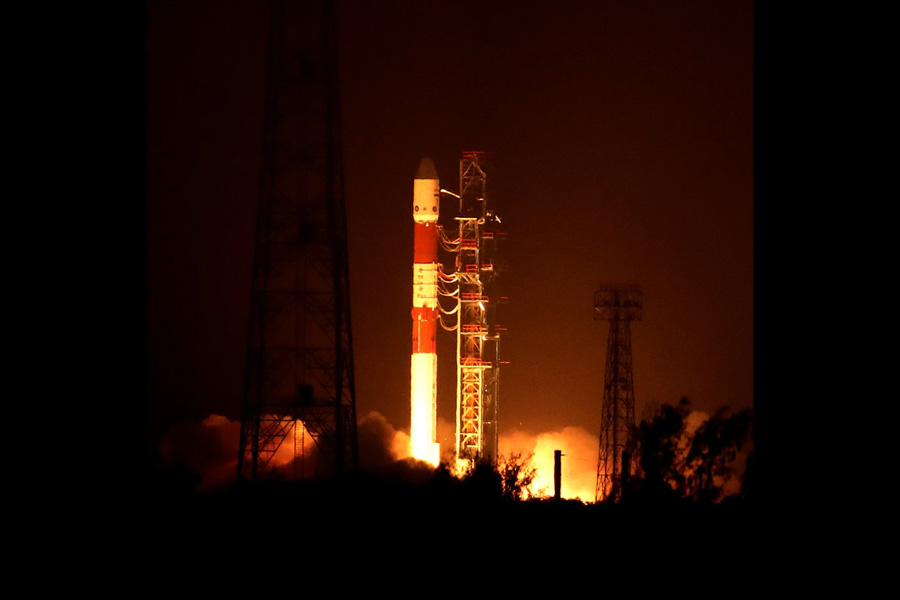Sir — It is unlikely that the ongoing Israel-Palestine conflict will end anytime soon (“On fire”, May 18). The skirmish, decades in the making, has taken thousands of lives over the years. The Israel-Palestine war began with the United Nations Partition Plan for Palestine which recommended the division of land between Arab and Jewish states at the end of the British mandate in the region. The proposal was rejected by Palestinians, leading to a civil war which continues to this day.
The recent round of friction began earlier in May with Israeli forces attacking Palestinian civilians. Retaliatory attacks by Hamas have killed many in Israel as well. At least 10 senior Hamas militants have reportedly died so far.
It must be noted that over the last few years the Israeli prime minister, Benjamin Netanyahu, has lost credibility amongst the people. The fact that the conflict flared up at a time when there was a possibility of Netanyahu being ousted from power is certainly curious.
Bhagwan Thadani,
Mumbai
Sir — The Israel-Palestine conflict has escalated dangerously within days. Over 200 Palestinians, including children, have been killed since May 10. Israeli citizens have lost their lives as well. Both sides have refused to stand down from the fight in spite of international appeal.
Resentment has been growing among the Palestinians as Israel continues to deepen its occupation in the region. Israel’s high-handedness in East Jerusalem and the eviction of Palestinian families from their homes in Sheikh Jarrah added to the anger, leading to clashes.
This is a no-win situation in which the civilians are taken hostage. The international community, especially the United States of America — it has considerable diplomatic hold in the region — must step in to de-escalate the conflict in Gaza and avoid another full-scale war in the Middle East.
S.S. Paul,
Nadia
Sir — It is obvious that the Gaza imbroglio is a consequence of Benjamin Netanyahu’s own shaky grip over his position as prime minister of Israel. A conflict with Palestine helps divert attention from the instability of the government.
With the Covid-19 pandemic raging across the world, the timing could not have been worse. Most nations are too preoccupied dealing with a health crisis at home to meaningfully mediate the situation. Nevertheless, the UN, along with its signatories, must do all it can to resolve the problem as quickly as possible.
K. Nehru Patnaik,
Visakhapatnam
Sir — The escalation of violence between Israel and Palestine is a cause for concern for the whole world, but it is particularly worrying for other nations in West Asia. The lack of political stability in the region is long-standing and no amount of effort at bringing about peace seems to be working.
The provocation by Israel with a series of misadventures in East Jerusalem is quite evident. The violent retaliation of Hamas is equally disturbing. Unlike the former president of the US, Donald Trump, who was quick to formally recognize the contentious declaration of Jerusalem as the capital of Israel, the current president, Joe Biden, must exercise caution. Although the world is engaged in fighting the coronavirus, no one can afford to be a mute spectator to this bloodshed. At the very least there should be an immediate ceasefire so that further discussions can take place between officials.
D.V.G. Sankararao,
Nellimarla, Andhra Pradesh
Need for care
Sir — As families struggle with multiple members infected with Covid-19, it has become increasingly difficult to care for pets. Many are looking for boarding facilities to keep their pets till they recover but are often turned away for fear of infection being spread through animals. In extreme circumstances, some families are giving them up for adoption. While several such animals have been rehomed in the last one year, many more have simply been abandoned on the streets. These are undoubtedly difficult times, but we must do all we can to ensure that animals are cared for.
Anamika Saha,
Calcutta










